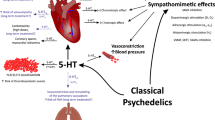Abstract.
There is a reciprocal regulation of arginase and nitric oxide synthase (NOS) in L-arginine-metabolizing pathways. Nitric oxide (NO) may be involved in some psychiatric disorders like schizophrenia, depression and bipolar affective disorder (BPAD). To our knowledge, there is no study in the literature in which the role of arginase, an important part of the arginine regulatory system affecting NOS activity, was investigated in BPAD. This study aims to investigate arginase, manganese (Mn) and total nitrite levels (a metabolite of NO) and their relationship to the arginine-NO pathway in patients with BPAD. Arginase activities, Mn and total nitrite levels were measured in plasma from forty-three patients with BPAD (Type one) and thirty-one healthy control subjects. Plasma arginase activities and Mn were found to be significantly lower and total nitrite level higher in patients with BPAD compared with controls. Our results suggest that the arginine-NO pathway is involved in the pathogenesis of BPAD.
Similar content being viewed by others
Author information
Authors and Affiliations
Corresponding author
Rights and permissions
About this article
Cite this article
Yanik, M., Vural, H., Tutkun, H. et al. The role of the arginine-nitric oxide pathway in the pathogenesis of bipolar affective disorder. European Archives of Psychiatry and Clinical Neurosciences 254, 43–47 (2004). https://doi.org/10.1007/s00406-004-0453-x
Received:
Accepted:
Issue Date:
DOI: https://doi.org/10.1007/s00406-004-0453-x



